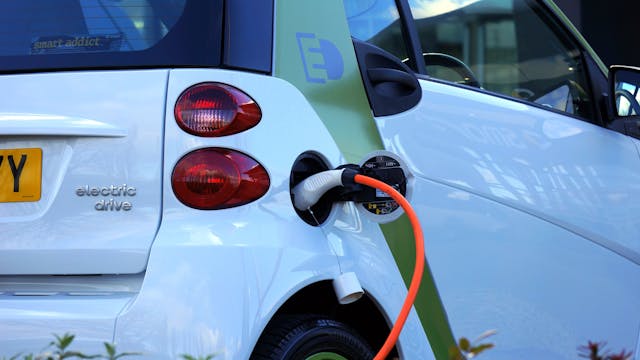7 Financial Tips for Evaluating Electric Vehicle Charging System Manufacturers
With the global rise of electric vehicles (EVs), the infrastructure to support these vehicles is a critical piece of the puzzle. The financial considerations related to choosing the right EV charging system manufacturer are paramount, not only for businesses but for cities and homeowners as well. Selecting the best fit for your specific needs involves a deep understanding of the industry, the technology, and the long-term benefits. In this comprehensive guide, we reveal the top financial tips for evaluating EV charging system manufacturers. Whether you're an eco-conscious individual looking to invest in home charging solutions, a bustling metropolis transitioning to a cleaner, more efficient transit system, or a commercial entity integrating EV technology, these tips will steer you in the right direction.
Charging Capability Counts
When evaluating EV charging system manufacturers, 'one size does not fit all'. There are various charging capabilities to consider, from standard level 1 units, which use a 120-volt connection and offer the slowest charge, to level 2 chargers which use 240-volts and are often found in public charging stations. When assessing charging capabilities, look beyond the standard features. You should take into account the potential for future upgrades and the ability of the manufacturer to customize charging solutions to your specific needs. You can also click here to learn more about the simultaneous charging capability that allows multiple vehicles to charge without a significant reduction in charging speed. It's imperative to future-proof your investment as the EV landscape is rapidly evolving.
Network Accessibility and Growth
The reach of a charging network can greatly influence the convenience and cost-effectiveness of an EV charging solution. Manufacturers with an extensive network provide more accessible charging for customers and potentially a higher ROI for businesses. When evaluating a manufacturer’s network, consider not only the existing coverage but also the growth strategy. Will they be expanding into regions relevant to your operations or home location? Additionally, analyze the impact of partnerships with other charging providers and whether interoperability between networks is a priority. To leverage the full potential of your investment, ensure your chosen manufacturer is committed to expansive, accessible, and user-friendly charging networks.
Warranty and Ongoing Support
The peace of mind provided by a robust warranty and dependable ongoing support is invaluable. Check the duration and terms of the warranty to safeguard your investment against potential defects or malfunctions. Manufacturers offering longer warranties often signal confidence in the quality of their products. Equally important is the availability and responsiveness of customer support services. Assess the ease of accessing support, the average response time for troubleshooting, and the provision of regular maintenance services. Remember, a reliable support system not only minimizes downtime and repair costs but also maximizes the lifespan and performance of your charging infrastructure.
Government Incentives and Regulatory Compliance
The financial landscape of EV charging is heavily influenced by government incentives and regulatory frameworks. Manufacturers that stay updated on such policies and can assist you in navigating subsidies, tax credits, and grants could significantly reduce the initial and operational costs of your EV charging solution. Furthermore, it is essential to ensure the charging system complies with local regulations and standards, avoiding any future legal complications or costly modifications. Manufacturers who are proactive in compliance and stay ahead of the curve in regulatory changes can save you both time and money.
Scalability and Integration
The capability for a scalable and integrated charging solution is critical, particularly for businesses experiencing growth or those operating in complex set-ups such as multi-use developments and fleet charging. A manufacturer's readiness to provide hardware, software, and management systems that can grow with your needs is vital. Scalability ensures that your EV infrastructure can keep pace with increased demand without the need for a complete overhaul. Integration with existing or planned energy management systems, such as solar or smart grid technologies, can further optimize the efficiency and cost-effectiveness of your EV charging deployment.
Total Cost of Ownership
Evaluating EV charging system manufacturers should include a comprehensive comparison of the total cost of ownership (TCO). Beyond the initial purchase price, consider installation costs, energy consumption, maintenance, and any potential upgrade or replacement costs. A TCO analysis provides an accurate assessment of the long-term financial implications of your investment. Manufacturers who prioritize energy efficiency can significantly reduce operating costs, especially when combined with renewable energy sources. Each aspect of the TCO calculation offers an opportunity to save or spend more, making it a crucial step in selecting the right manufacturer.
Choosing the right EV charging system manufacturer involves a detailed financial assessment covering various aspects such as charging capabilities, network accessibility and growth, warranty and support, incentives and regulations, scalability, TCO, and reputation. By meticulously evaluating these areas, you can secure a sound, long-term financial investment in EV charging infrastructure that not only meets your present needs but also adapts to the future.

